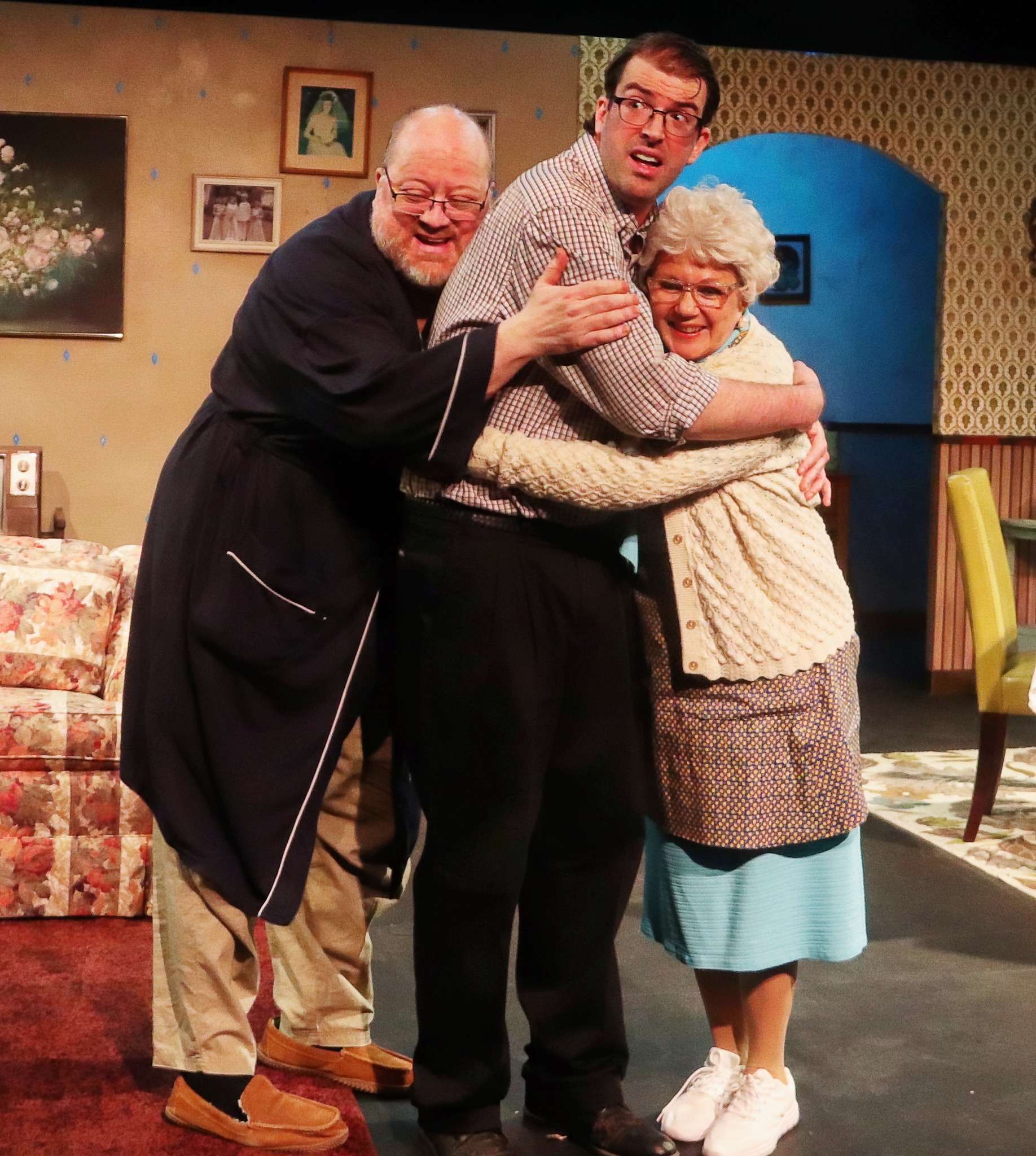By George Basler
Over the River and Through the Woods has some elements that work against it. The Italian-American family at the center of the play comes dangerously close to caricature. The plot veers dangerously close to television sitcom land.
But the play has strengths as well, mainly gentle humor, emotional warmth and some poignant observations about the nature of human relationships. In the end, these strengths outweigh the weaknesses, and the play becomes a funny and heartwarming work that can safely be called a real audience pleaser.
That’s the case with a production that opened this past weekend (Nov. 18-20) at the Cider Mill Stage in Endicott and will run through this coming weekend. Produced by BLAST (Bold Local Artists of the Southern Tier), the show is an engaging look at intergenerational and family relations, and how they inevitably change over time.
The six cast members, directed by Kate Murray, do a good job in bringing the boisterous family to life. Their performances make the characters real people, not stereotypes.
Over the River and Through the Woods was written by Joe DiPietro and was a hit off Broadway, running for 800 performances over a two-year period.
The action takes place in a modest living room/dining room in Hoboken, N.J., a milieu that DiPietro seems to know extremely well. The characters include a grandmother who is always pushing food on her grandson, and a second grandmother who collects Mass cards for the same grandson. There is plenty of good-natured family bickering. Most importantly, the characters talk about tenga familia, an Italian expression that, loosely translated, means “take care of your family.”
The play centers on Nick (Isaac Weber), a 29-year-old bachelor who works as a marketing executive in New York City but remains closely tied to his four elderly grandparents (Ted Nappi, Paula Bacorn, Danny Ceballos and Amy Hathaway Gilbert). Once a week, he takes a bus to Hoboken to have Sunday dinner with the four, whom he loves dearly but often finds infuriating. (A pet peeve: They never turn on the air conditioning even on the hottest summer days.)
The cozy routine is upended when Nick announces he has received a promotion and will be moving to Seattle. The stunned grandparents dedicate themselves to making Nick stay. Their scheme involves inviting a young Irish-American woman (winningly played by Stefanie Willette) to Sunday dinner in hopes sparks will fly, and Nick will forget about moving across the country. The question becomes: Will Nick leave for Seattle, or stay near his doing grandparents?
The first act has a large share of laughs, and the Cider Mill cast does a good job milking them. Weber gives an effectively broad, and funny, performance as he plays Nick’s mixture of affection and annoyance toward his grandparents.
That being said, the act is a bit thin and predictable. The characters fuss and fume but remain pretty much stock characters without real depth.
That changes in Act II. DiPietro mixes humor with more serious moments, and the play comes into its own. Particularly funny is a scene in which Nick and the four grandparents play a game of Trivial Pursuit. The game turns into a series of non sequiturs and free associations that are drop-dead funny and true to life.
But the backbone of the act, and indeed the entire play, is a series of monologues in which the grandparents reflect on their past lives. One remembers his father who forced him to leave Italy for a better life in America. Another describes how family has given her life meaning. Two other grandparents tell a story about their courtship, which is half true, and half loving exaggeration.
Nappi, Bacorn, Ceballos and Hathaway Gilbert all get their moments in the spotlight and play them with grace and feeling. Their performances are touching and believable.
Credit goes to Murray, BLAST’s executive director, for bolstering the cast’s natural chemistry. Credit also goes to Gabrielle Button, lighting designer, whose lighting of the monologues is key to making them work.
In the end, what gives DiPietro’s play resonance is its willingness to avoid a sticky sentimental ending. Instead, it faces the bittersweet reality first voiced by the Greek philosopher Heraclitus: “Nothing is permanent but change.”
The Cider Mill production is an affecting tribute to food, faith and family.
IF YOU GO: Over the River and Through the Woods will conclude its run this weekend (Nov. 25-27)at Cider Mill Stage, 2 Nanticoke Ave., Endicott. All performances are at 7:30 p.m. Tickets at $25 can be purchased online at cidermillstage.com or by calling the box office at 607-321-9630




































